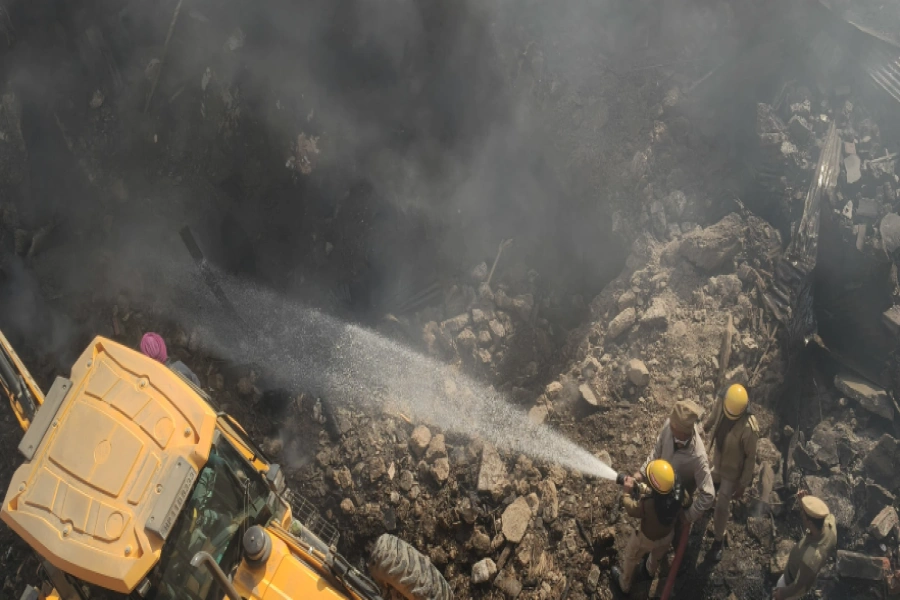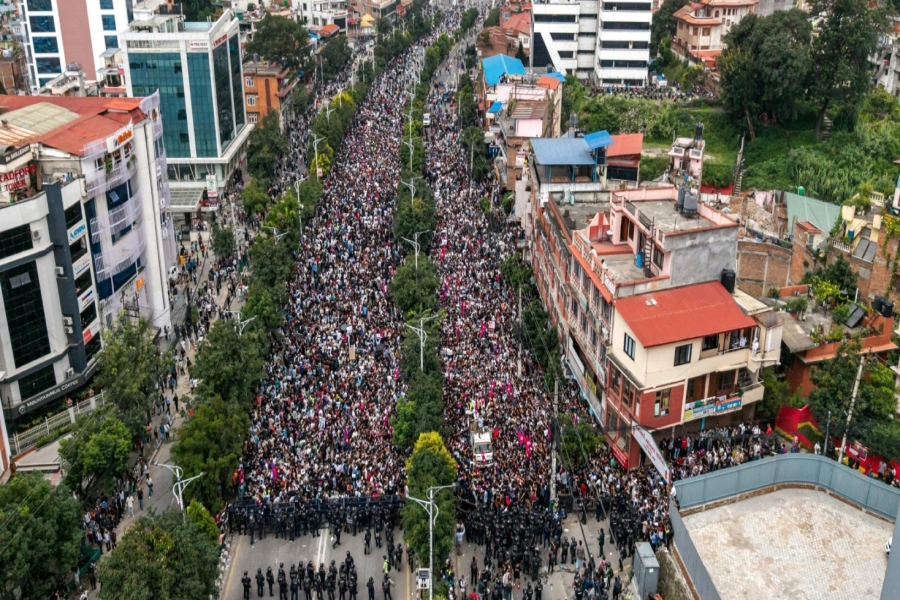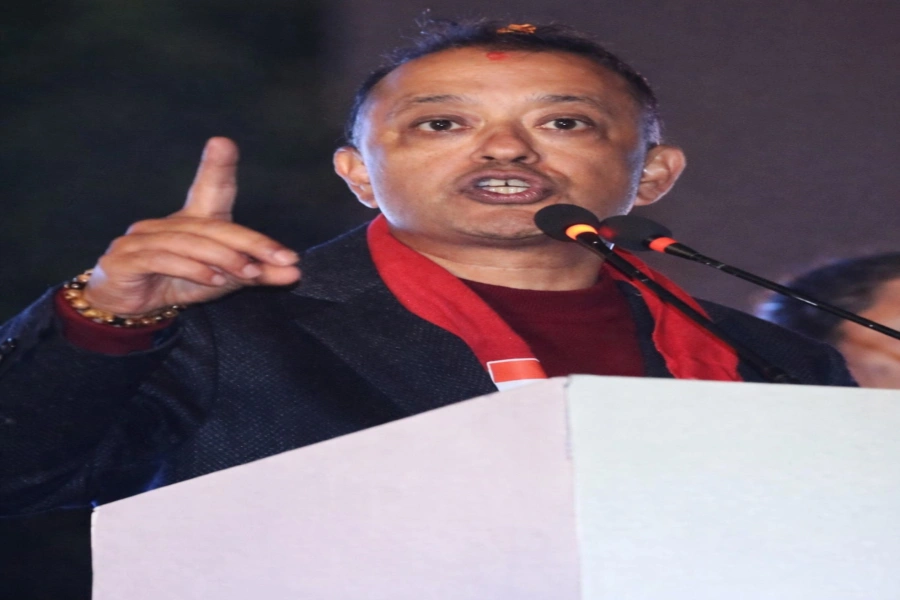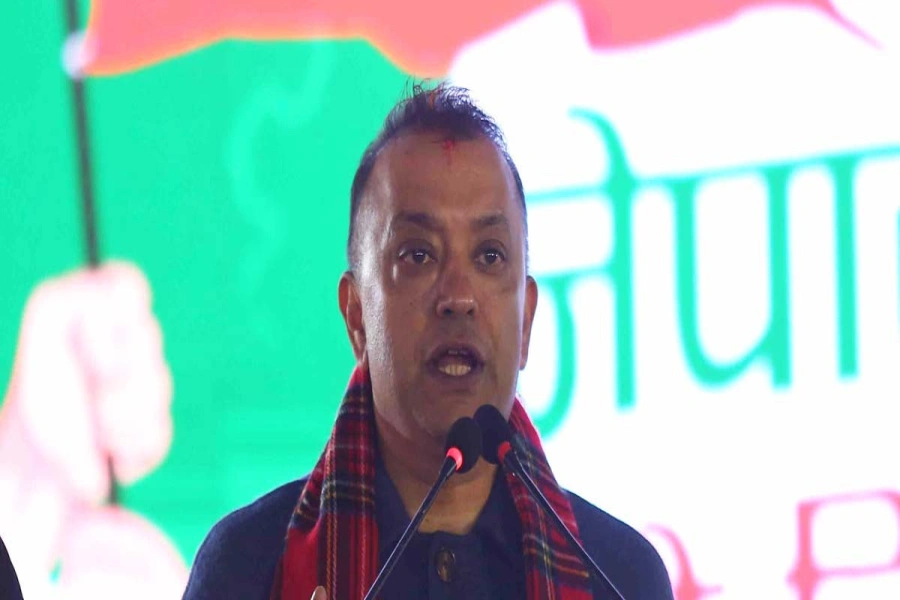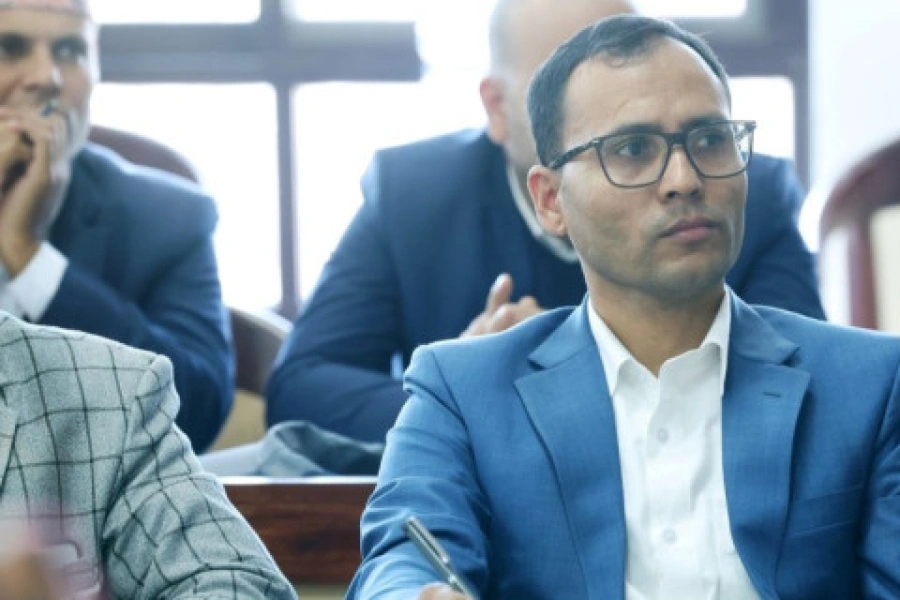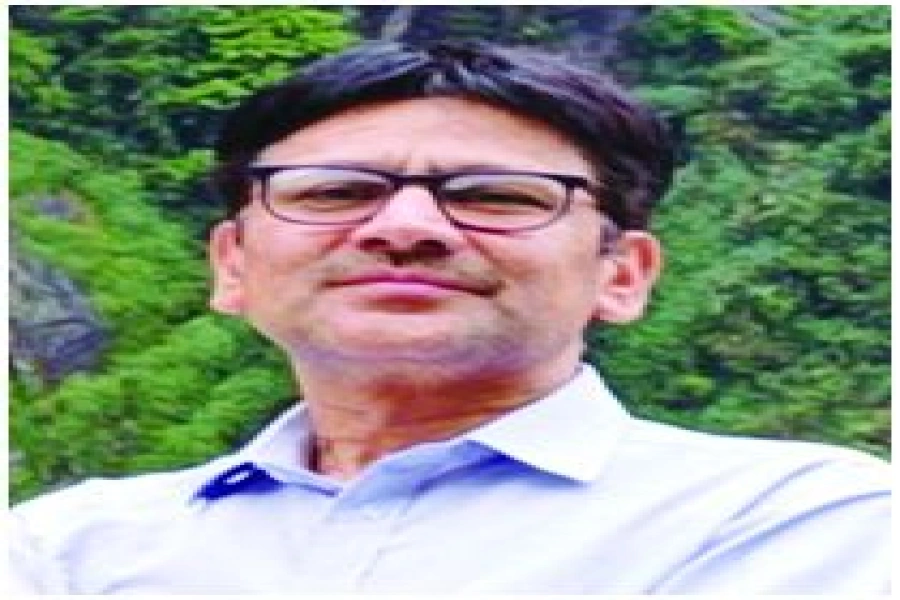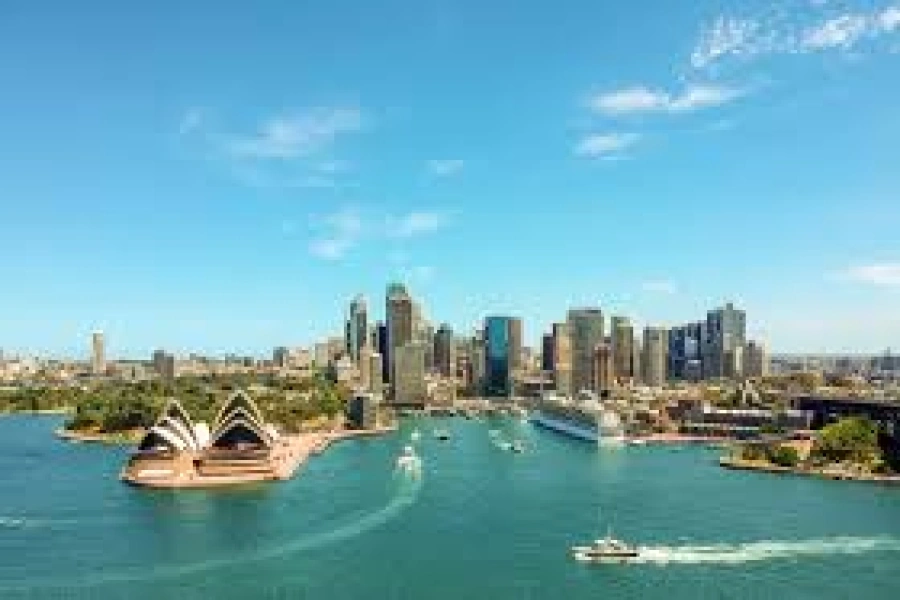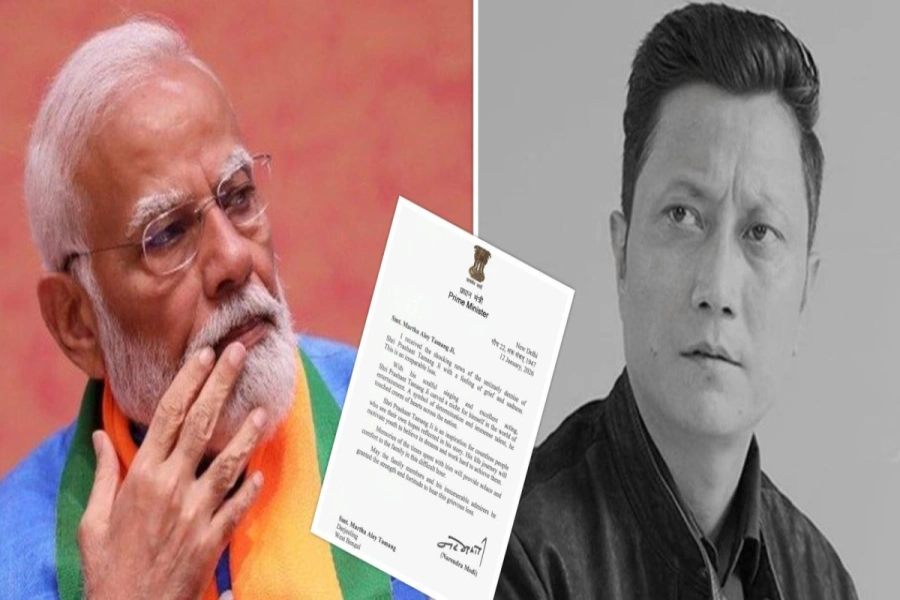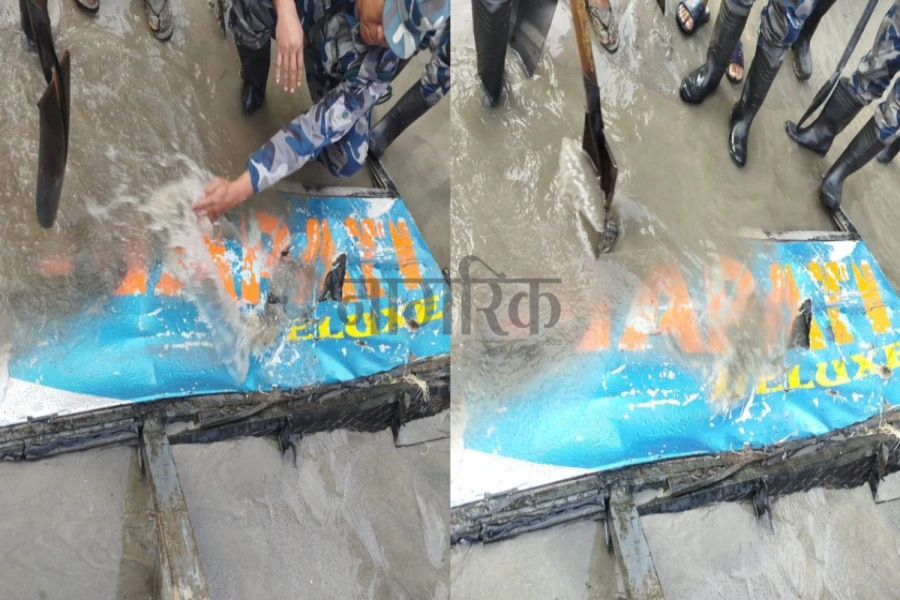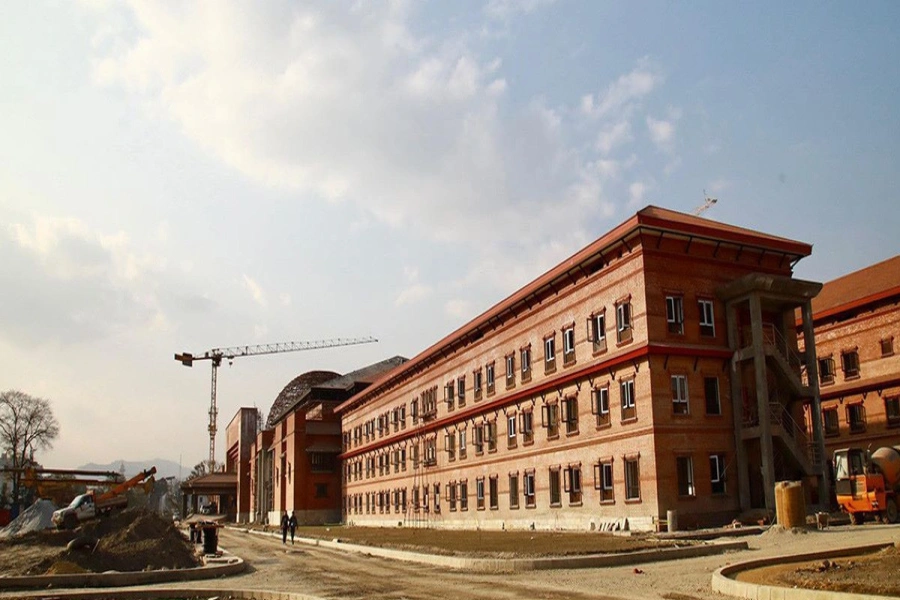The Barathhawa area in Sarlahi has been tense for the past two days. The local administration in Sarlahi has imposed a curfew to contain the possible unpleasant situation as the clash that ensued between the police personnel and the agitating demonstrators has claimed the life of one person and several others are said to have been injured. The incident came days after a similar incident in Balkumari, Lalitpur, in which police personnel and agitating youths who were denied to sit in for the EPS examination for jobs in South Korea engaged in violent clashes and subsequently two youths were killed and several others sustained injuries. These two separate incidents highlight the need to make a thorough investigation and find ways to avoid similar situations in the future.
As a matter of policy, police are supposed to use force only as a last resort. They are expected to first try to convince the agitating crowd to stop the protest through peaceful negotiation and dialogue. Even if they are forced to open fire in self-defense or not let the protestors violate law and order situation, police personnel are supposed to use force in such a way that it causes minimum harm or injury. For instance, police personnel are supposed to use tear gas shells or rubber bullets to disperse the crowd. If they are forced to use live bullets, they are supposed to shoot at the protestors below their knees. However, this does not appear to be the case in both the incidents. While the nation mourned the loss of the lives of two youths in Balkumari, Lalitpur, it is unfortunate that a similar incident occurred within days in Barathahawa where a youth Jaishankar Sah died as a result of police firing. The curfew that was enforced at 5:30 PM on Friday was extended again from Sunday 12:45 PM to Monday 8 AM to contain the possible untoward situation.
UNGA Votes to Condemn Israel's 'Excessive Force' Against Gaza P...

While the investigation in connection with the Balkumari incident is currently underway, it appears that police personnel on duty did not exercise adequate restraint but used excessive force instead. It seems that the situation is similar in Barathahawa. So, this highlights the urgency for police personnel on duty and those giving orders to them to exercise maximum restraint to contain the crowd. It is also equally necessary on the part of politicians and civil administration to do the needful. In most cases, protests erupt not because of the actions of police personnel, but because of certain political or administrative decisions. While taking such decisions, both politicians and bureaucrats must provide convincing reasons to people whom these decisions are meant to affect. When people are convinced with the decision that has been taken, they will not go to the streets in the first place. This needs a transparent decision-making process.
When people take to the streets demanding their concerns be addressed, it is the duty of both politicians in power and bureaucrats concerned to take their demands seriously and try to address them before it is too late. Politicians and policymakers must play their role to douse the anger in a peaceful manner instead of inciting people to take forceful measures to address their concerns. Given the tendency of people to take to the streets and create mayhem even to meet the simplest of their demands, it seems equally necessary for stakeholders concerned to help inculcate a feeling among people that they can exert pressure on the government and policymakers to meet their demands even through peaceful means. The unpleasant incidents like those of Balkumari and Barathahawa can be avoided if all stakeholders work together to avoid a situation where people have to take to the streets to meet their demands in the first place.





